
Jerky starting and stopping
“Transmission issues are expensive. So, if you notice violent acceleration or braking while driving your car (and especially if all that jerking and shuddering is accompanied by some unpleasant grinding noises), it’s likely time to move on to a new vehicle.” —Matt Smith, senior editor at CarGurus.com. Avoid most car issues and opt for one of the reliable cars that rarely need a mechanic.
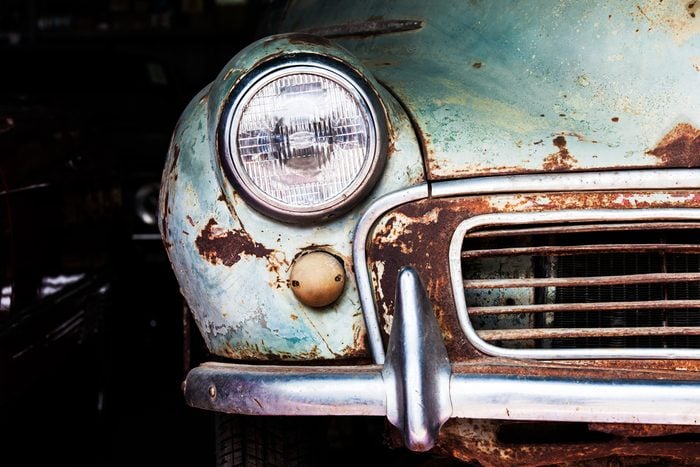
Your car has rust
“Rust is a very expensive problem to fix and it continues to get worse if you don’t catch it when it starts. The chemicals they put on the roads during the winter really eat away at the paint and metal. Once rust starts, it spreads quickly. Water leaks also tend to do widespread damage in that water sits in hidden spots and causes corrosion. Both problems need to be looked at thoroughly to gauge how much damage has happened.”—Tom O’Neill, owner of O’Neill’s Auto Body Shop in New Holland, Pennsylvania. Learn these 34 secrets that dealers know but you don’t.

You’re holding on for love
“Lots of people, professing to love the inanimate object that is their car, continue to make payments or repairs they can’t afford. Sometimes you just have to cut the cord and sell it.”—Lauren Fix, The Car Coach. If it’s time to buy a new car, learn how to outsmart a car salesman.
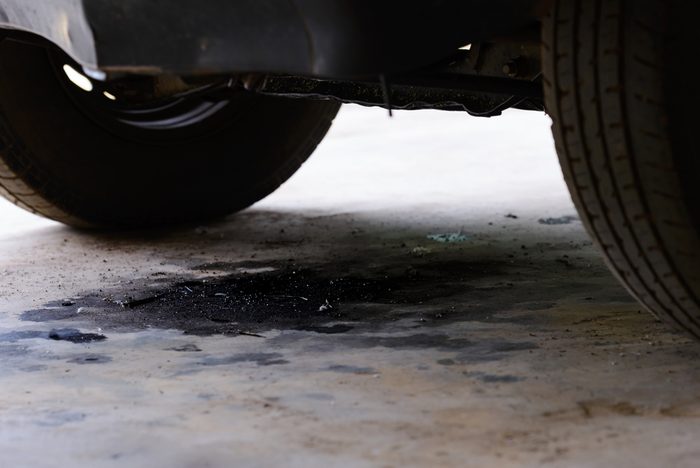
It’s leaking fluids
“Much like the human body, your car requires precious fluids to stay alive. If you are having to refill any of your car’s vital fluids—coolant, oil, brake, and power steering fluid, etc.—every month, then it is only a question of when, not if, something will go out.”—David Ambrogio, a consultant at Superior Honda in New Orleans, Louisiana.
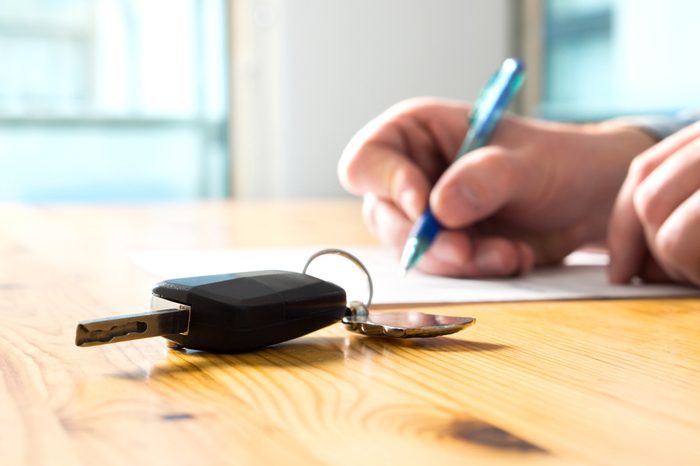
There’s a change in your financial picture
“If you purchased a truck when gas prices were low, but now they are straining your finances, you have to consider if this is a long-term option for you. Another example may be a sports car that has great payments, but the insurance is putting it out of your reach.”—Valerie Coleman, a longtime car expert at AutoTrader.com and now the mobile marketplace 5miles. Following this outdated car care advice could cost you big in the long run.

The cost of the repair could get you a newer ride
“I would advise that before spending the big bucks on a big repair, ask yourself, ‘What can I sell the car for while it’s running, and can I combine the sales proceeds with the money I would otherwise have spent on repairs to buy something newer and more reliable?’ I owned a high-end European car with over 200,000 miles on it. It ran great, but needed parts replaced. The estimate for all the named work was close to $4,000. The car had a book value of around $2,500. As the cliché goes, I was about to throw good money after bad. Sure, I might have gotten another 50,000 miles out of it, or it could have died 5,000 miles later. Another option would be to take the $4,000 I was about the spend, give my car away for $2,000, and buy a nicer, newer, used car for $6,000—which is what I did.”—Richard Reina, automotive expert and product training director for CARiD.com
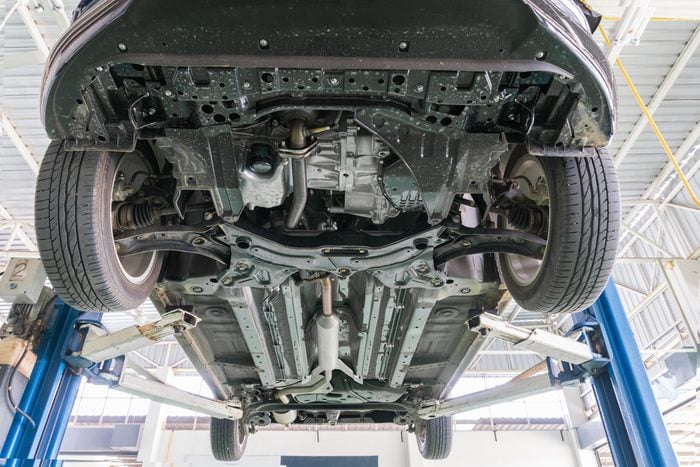
Repeated recalls
“No mechanical item is without issue, which includes your vehicle. Always make sure you keep up with your recalls, but if it becomes a pattern or happens to be a major recall, it may be time to investigate getting a new car.”—Valerie Coleman. Buying a car online? Here’s what you need to know.
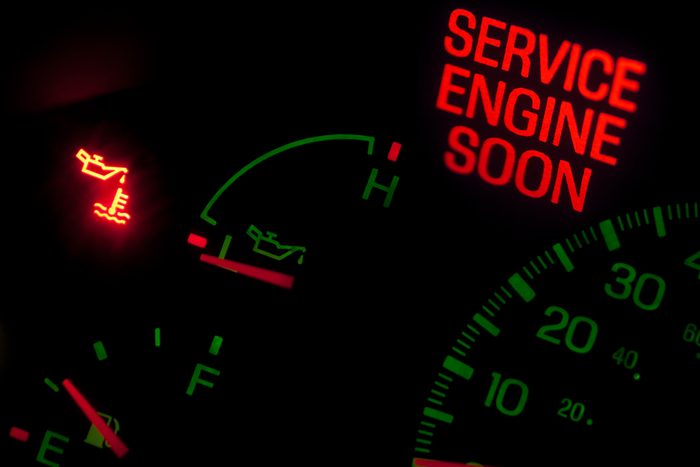
Lots of little blinking lights
“The earliest sign of a car on its way out will often be found on the dashboard. All of those little warning lights are important, and ignoring them could spell more trouble down the road. If your check engine light is illuminated, you should take the car to your mechanic as soon as possible. If the oil light is on, you’ll want to pull over and call for help. And if either light persists, it may be time to find a new car.”— Matt Smith. Learn some other secrets your car mechanic won’t tell you.
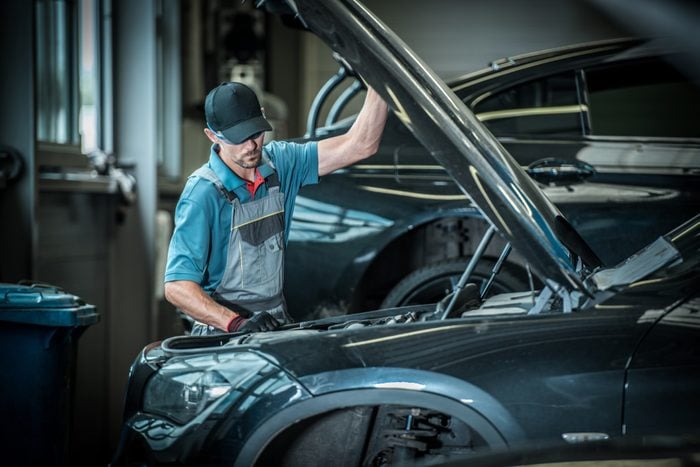
Your mileage and warranty don’t line up
“If you are like many people, a warranty is required for peace of mind. While there are companies that offer extended warranties, make sure you read the fine print. And watch your odometer. If you are near your warranty expiration and you are not in a position to buy an extended warranty, it may be a good time to look around.”—Valerie Coleman.
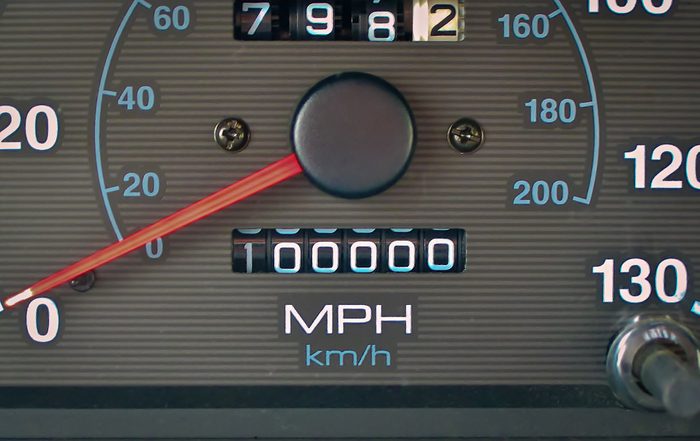
You’ve hit the century mark
“When you hit that 100,000-mile marker, take stock of what you have, especially if you bought the car used. Sometimes a car will run for 175,000 miles, so it’s worth the investment. But if you buy a used car with a body that’s starting to rust out, you can bet the complex components were neglected too.”—Lauren Fix. Beware, your car won’t survive winter without these fixes.
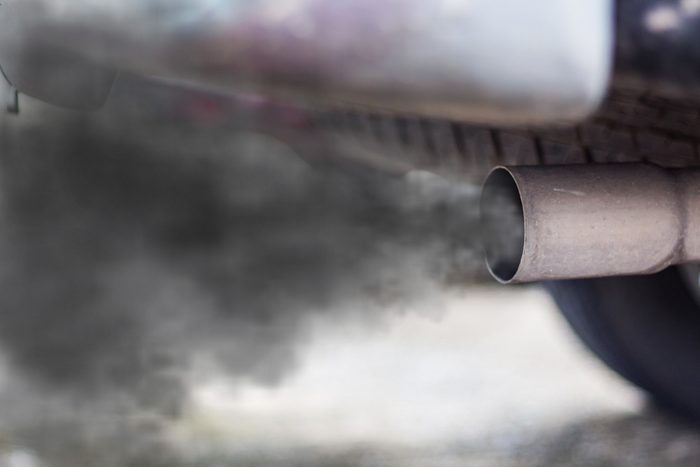
It’s blowing smoke
“Blue smoke pouring from the tailpipe means your car is burning oil, and white smoke means it’s evaporating coolant. You can certainly keep adding either fluid to your engine to keep the wheels turning, but failing to do either will result in that smoke starting to billow under the hood—and then it’s time for either an expensive fix or a new car.” —Matt Smith.
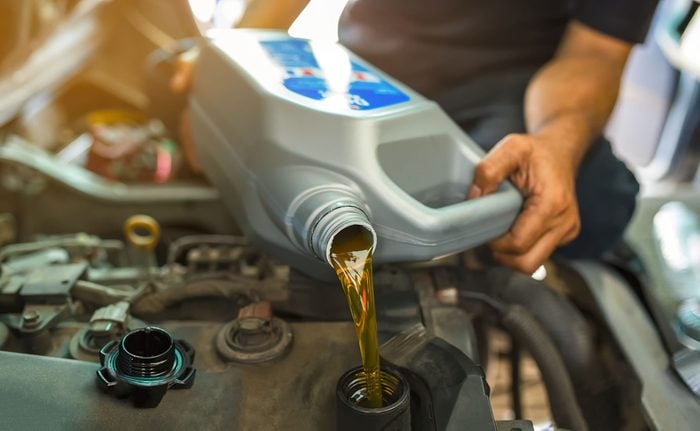
It’s knocking on Heaven’s door
“Keeping your car regularly lubricated with vital fluids goes a long way in maintaining your engine. Skipping regular maintenance can eventually cause your car’s camshaft to be no longer in sync with the pistons, leading to a ‘knocking’ sound that is a tell-tale sign that something is seriously wrong. This is an expensive fix, and it is usually time at this point to start saving up for a new engine.”—David Ambrogio. Keep these items in your car to be insanely more productive.
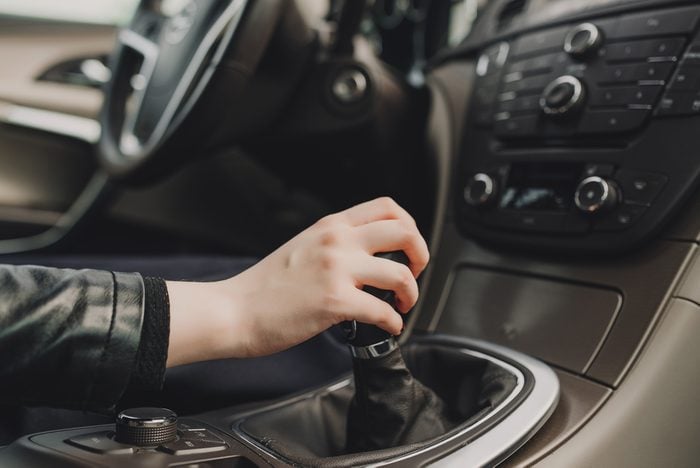
The transmission is slipping
“A slow response from your car’s transmission is another sign that your vehicle is about to die. Once the transmission starts losing gears, it’s ok to drive the car for a few more miles, but you will just be delaying the inevitable. At this point, the solution is to replace the transmission or get a new car.”—David Ambrogio. Avoid being overcharged for a service you don’t really need by watching out for these car repair scams.
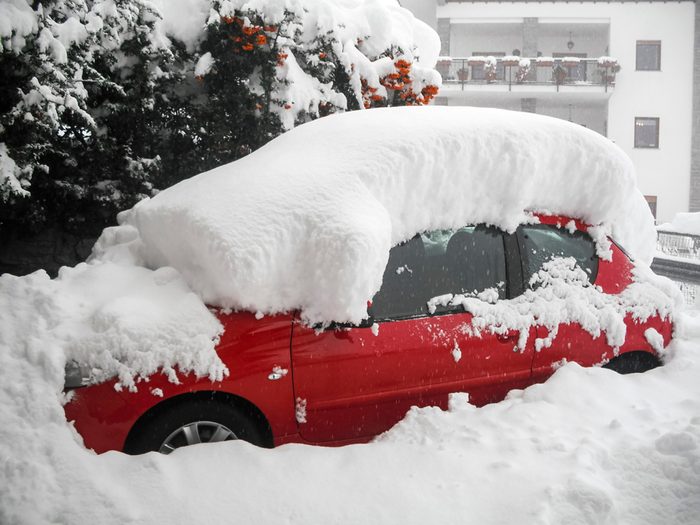
It’s snowing in your convertible
“Not everyone can afford to have seasonal cars. If you recently moved up north, or made a mid-life decision and find yourself driving a sports car in six inches of snow, it might be time to consider a car that better suits the weather and your lifestyle.”—Lauren Fix. Next, be aware of these ways that you’re wasting money on your car.
Sources:
- Matt Smith, senior editor at CarGurus.com
- Tom O’Neill, owner of O’Neill’s Auto Body Shop in New Holland, Pennsylvania
- Lauren Fix, The Car Coach
- David Ambrogio, a consultant at Superior Honda in New Orleans, Louisiana
- Valerie Coleman, a longtime car expert at AutoTrader.com and the mobile marketplace 5miles
- Richard Reina, automotive expert and product training director for CARiD.com